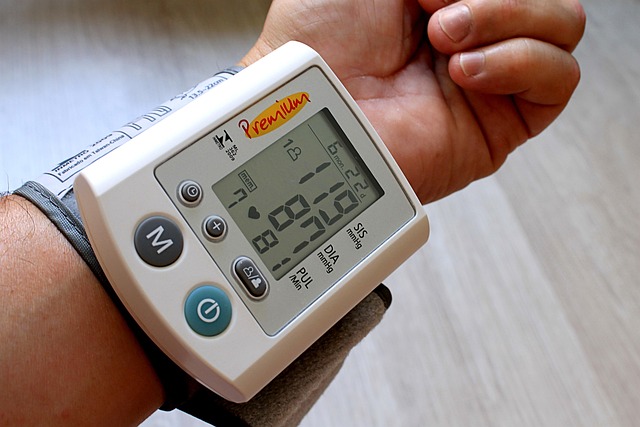Iron deficiency anaemia, common in diabetics in the UK, is diagnosed via Complete Blood Count (CBC) and serum ferritin tests. Low haemoglobin levels indicate anaemia, while iron levels help identify dietary intake or absorption issues. Treatment includes dietary changes, supplements, or addressing underlying causes; regular follow-ups are crucial for effective management, especially for diabetics. Diabetes blood tests in the UK play a vital role in screening and managing this health concern.
Iron deficiency anemia is a common yet treatable condition, especially among individuals with diabetes. If you’re experiencing fatigue, weakness, or pale skin, getting tested could be crucial. This article guides you through the process of iron deficiency anemia testing using blood tests, focusing on key procedures and what to expect in the UK. We’ll break down common tests, result interpretation, and next steps for effective management, highlighting the importance of early diagnosis, especially for diabetics.
- Understanding Iron Deficiency Anemia Testing
- Common Blood Tests for Iron Deficiency
- Interpretating Results and Next Steps in UK
Understanding Iron Deficiency Anemia Testing
Iron deficiency anaemia is a common blood disorder where your body doesn’t have enough healthy red blood cells to carry adequate oxygen to your body’s tissues. This can be caused by a variety of factors, including blood loss, poor diet, or an inability to absorb iron properly. Testing for iron deficiency anaemia typically involves a simple blood test that measures the level of haemoglobin in your blood, as well as the amount of iron present. In the UK, diabetes blood tests often include checks for anaemia, given that people with diabetes are at a higher risk of developing this condition.
Understanding the results of these tests is crucial. A low haemoglobin level or inadequate iron stores on the test results can indicate iron deficiency anaemia. Healthcare professionals may also look at other markers in your blood, such as ferritin (a protein that stores iron), to confirm the diagnosis and determine the severity of the condition. Once identified, iron deficiency anaemia can usually be treated effectively through dietary changes, iron supplements, or addressing any underlying causes, ensuring better overall health.
Common Blood Tests for Iron Deficiency
Iron deficiency is a common cause of anemia, and several blood tests can help diagnose it. One of the fundamental tests is the Complete Blood Count (CBC), which measures different components of your blood, including red blood cells, hemoglobin levels, and hematocrit. This test provides valuable insights into potential iron deficiencies or other types of anemia.
Additionally, a serum ferritin test is often used as a marker for stored iron in the body. Low ferritin levels can indicate iron deficiency, making it a crucial indicator in diagnosing anemia. In the UK, diabetes patients are particularly at risk and may require regular screening, including simple blood tests like these, to monitor their iron status alongside their glucose control.
Interpretating Results and Next Steps in UK
After undergoing an iron deficiency anemia testing with a blood test, understanding your results and deciding on the next steps is crucial. In the UK, healthcare professionals will interpret your results based on several factors, including age, sex, and overall health status. A lower-than-normal hemoglobin level (the protein in red blood cells that carries oxygen) often indicates anemia, while specific iron levels in the blood will help pinpoint the cause. If you have low iron stores but normal hemoglobin, it suggests a deficiency in dietary iron absorption, which is common in individuals with diabetes or those on certain medications.
Upon receiving your results, the next steps depend on the severity of the condition. Your healthcare provider might recommend lifestyle changes, such as adjusting your diet to include more iron-rich foods and vitamin C sources to enhance iron absorption. In some cases, oral iron supplements may be prescribed. For individuals with diabetes in the UK, it’s especially important to monitor blood sugar levels closely during treatment for anemia, as certain iron supplements can affect glucose control. Regular follow-up tests will be essential to track progress and ensure effective management of iron deficiency anemia.
Iron deficiency anemia is a common but treatable condition, especially in individuals with underlying health issues like diabetes. Blood tests play a crucial role in identifying and managing this condition, offering simple yet effective methods to screen for iron deficiency through various analyses. By understanding the results of these tests, as outlined in this article, individuals in the UK can take informed steps towards better overall health, ensuring anemia due to iron deficiency is effectively managed or prevented. For those with concerns, consulting healthcare professionals is essential, especially when considering common diabetes blood tests like those performed in the UK.
